Fudd Friday: How Turkey Is Capturing The Budget Hunting Firearm Market

In the year 2025, if you’re a shooter looking for an affordable hunting rifle or shotgun, one country is increasingly making a play for your dollar (or shekel, or GBP, whatever). Turkey has gone from being unknown in the world of firearms manufacturing to grabbing a huge market share in the low-cost segments. At the rate they’re going, they will control a massive chunk of affordable hunting firearms sales by the end of this decade. Here’s a look at how this is playing out, and why.
Made-in-Turkey @ TFB:
Militarization Moves
Turkey built muskets and cannons and other military arms; its modern defense industry boom was kick-started after its 1974 invasion of Cyprus. Facing an arms embargo by the U.S. after that military operation, the Turkish government began to increasingly prioritize domestic military production. In the decades that followed, the country began opening manufacturers producing everything from missiles to aircraft to armored vehicles—and of course, small arms for infantry.
This meant Turkey had a speed run of defense sector production, gaining a lot of expertise that could be then turned around and applied to civilian firearms, like duck guns and deer rifles. Up through the 2010s, some North American firearms factories were still limping along with decades-old machinery. One good example is Marlin; when Ruger bought the brand and its production equipment from Remington, the scuttlebutt was that all-new tooling was required because many of the old factory’s machines were in poor shape.
The Turkish factories didn’t face problems like this, because many of them were founded over the past 20 years with modern computer-guided equipment from the very start.
Turning towards commercialization
The Turks would have probably been very happy to sell assault rifles to other countries, but military-style weapons have a pretty limited market in most countries. The sensible thing was to branch out into exporting hunting-style firearms to Western countries, and that’s what the Turks did, starting in the first decade of the 2000s. And they had two things go right for them, all around the same time.
First, the U.S. economy hit the skids in 2008. Buy, buy, buy turned into broke, broke, broke. The world’s biggest gun market was on the lookout for lower-priced firearms.
Second, Barack Obama won the 2008 election, and as American buyers started spending money again over his two terms, with the economy seemingly recovering from the 2008 crash, they spent more and more and more money on guns, a trend that continued through Trump’s first administration and the Biden years. To be sure, the emphasis was on tactical-style firearms, but all guns were in demand, with the peak of the demand occurring during the COVID years. And with American companies increasingly focusing on black rifles, that meant more room for the Turks to expand their fudd fare.
And a third factor also helped a lot: the U.S. government’s ban on Chinese and Russian firearms. In other countries, firearms from these countries are common on the low end of the pricing spectrum, but they are mostly unavailable in the United States.
This gave the Turks a market that was keen to buy affordable guns. Their government policies ramped up the civilian firearms manufacturing sector significantly through the 2010s, with low-interest loans and other subsidies, and significant marketing assistance. If you’ve been to the SHOT Show, you know—there are almost countless booths of Turkish manufacturers attending, with their costs all subsidized by their national leaders.
Mainstream market
The first Turkish hunting firearm that really ran across my radar was the H&R Excell semi-auto 12-gauge, which hit North America around 2010. It was the perfect example of what was to come: a partnership between a U.S.-based company and a Turkish factory (Sarsilmaz, in this case). You could buy the Excell semi-auto with a decent-looking walnut stock or a camo finish, just like much more expensive shotguns. And no, it wasn’t the same as a vintage Winchester Super X1, but for most buyers, it was more than good enough.
Other U.S. outfits like EAA and Charles Daly, Weatherby, even CZ-USA were selling Turkish-built guns then, or even earlier, and other companies have joined them in the years since. At this point, if you’re buying a value-priced shotgun in 2025, there’s a very good chance it was made in Turkey, no matter whose name is on the receiver. And the Turkish factories now appear to be poised to seriously disrupt the rifle market as well.
Bolt-action rifles from Turkey have been around for a while, but the Stevens 334 is the one that most fudds are likely to encounter at their local gun store, feeling much more solid than a Savage Axis 2 around the same price. While Turkish rifles may be a rarity at the LGS for now, a walk around the SHOT Show floor indicates they have many more to come, from manufacturers like ATA. They’re also branching out into the lever-gun world as well.
For shooters in states that ban semi-auto rifles with tactical features, the Turks even have a gun for you. Their new AKDAS Alcor .223 takes STANAG-pattern mags, but looks like a fed-friendly deer gun. If they bring them to the States, they’ll sell a lot of them.
The bottom line
Turkey currently makes a massive percentage of the hunting firearms sold in the U.S. under the $1,000 mark, and that seems likely to increase at the rate things are going. They seem to have a good idea of what buyers want in the States, and they’re willing to provide it.
But does that mean the future of fudd shooting is all Turkish? Not at all. The Belgians, the Brits and other countries all offered their own low-priced hunting guns to American shooters at various times, and they are not really a factor anymore. Turkish guns are only a tariff away from being prohibitively expensive, driving buyers to guns from the Philippines, or Mexico, or wherever the next place is that offers perceived value.

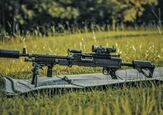
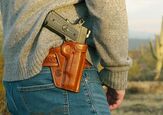
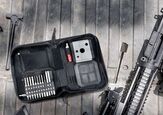







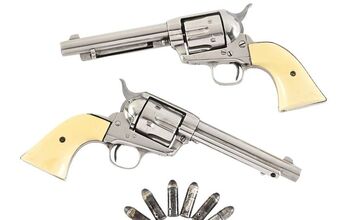
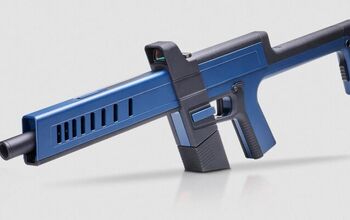

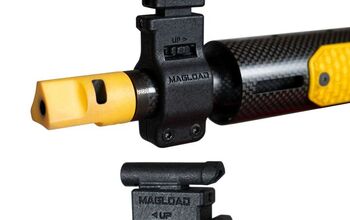
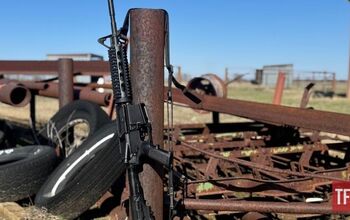
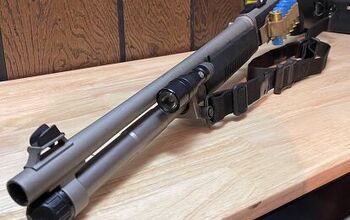


![[SHOT 2025] Radical Defense: Silencers For Cheytac And More](https://cdn-fastly.thefirearmblog.com/media/2025/01/28/22531/shot-2025-radical-firearms-silencers-for-cheytac-and-more.jpg?size=350x220)

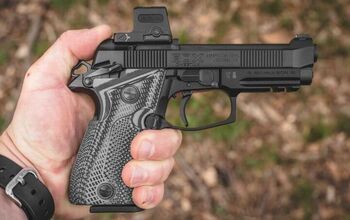




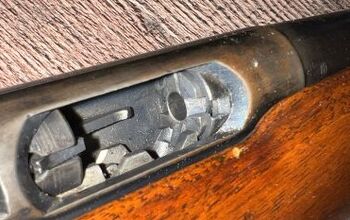

Comments
Join the conversation
Yes, the Turks are very fond of hunting and have been making guns and providing walnut for the finest European weapons for many years. Silah Istanbul currently makes Winchester SXP shotguns.
Turkey is a EUROPEAN country, NOT "Middle Eastern". Oy vay esmir!!
Either way, this Jew won't buy anything from Turkey as long as the viciously antisemitic Erdogan is in charge.
Other than that, Turkey makes excellent and highly affordable guns.